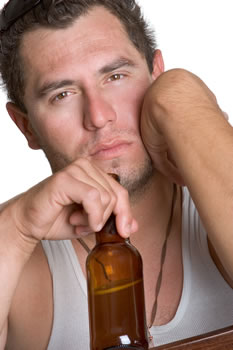
A joint study by doctors at the Northern State Medical University in Russia and the University of Louisville School of Medicine, Kentucky, US has shown that heavy drinkers given probiotics for five days had better liver function and a higher number of beneficial gut bacteria than subjects given the standard therapy (abstinence plus vitamins).
In this research, 66 adult Russian men who had been admitted to a psychiatric hospital with alcoholic psychosis were enrolled into a prospective, randomised, clinical trial to evaluate the effects of probiotics on bowel flora and alcohol-induced liver injury. The men were randomised to receive 5 days of treatment with Bifidobacterium bifidum and Lactobacillus plantarum 8PA3, or the standard therapy alone. 24 healthy, matched controls who did not consume alcohol were also included in the study. Stool cultures and liver enzyme function were examined for controls and study participants as baseline after the probiotic and standard therapy.
At baseline, compared to healthy controls, the alcoholic patients had significantly lower numbers of bifidobacteria, lactobacilli and enterococci. Also, the liver enzymes alanine aminotransferase (ALT), aspartate aminotransferase (AST) and gamma-glutamyl transpeptidase (GGT) were significantly raised in the blood of the alcoholic group, compared to the control group, which suggested they did have some alcohol-induced liver injury.
Compared to the alcoholic patients who received the standard therapy, those who were treated for 5 days with probiotic bacteria had a significant increase in the numbers of both bifidobacteria and lactobacilli in their stools. Furthermore, a subgroup of 26 patents with mild alcoholic hepatitis (defined as AST and ALT greater than 30U/L with AST-to-ALT ratio greater than one) who had been given the probiotic therapy showed a significant treatment reduction in ALT, AST, GGT, lactate dehydrogenase and total bilirubin, compared with those given the standard therapy. (From a brief report in the Daily Mail (29/12/08) and authors summary in Alcohol, December 2008, 42 (8): 675-682).
Also see: Health and Happiness
